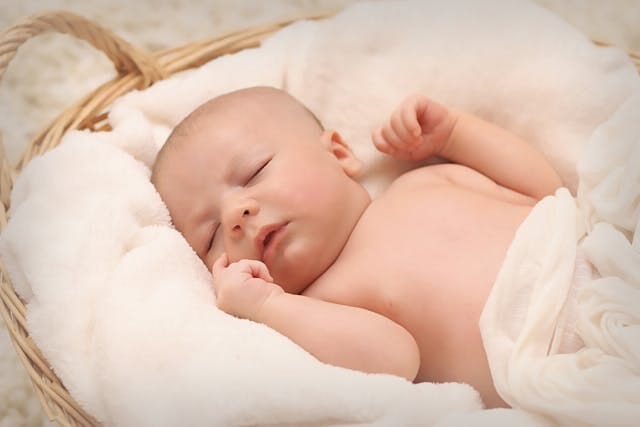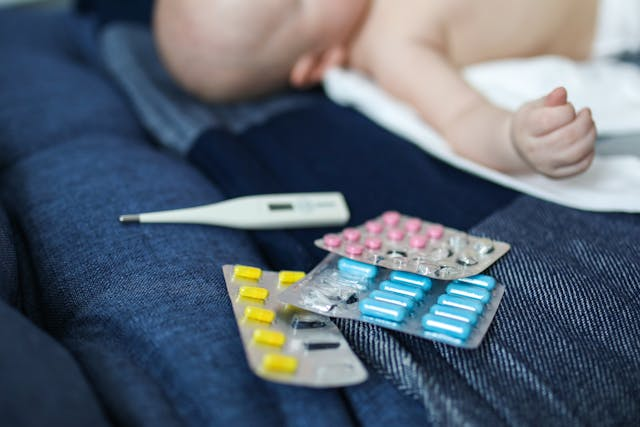
How to Treat Yellow Watery Diarrhea in Babies
Time to read 3 min
Time to read 3 min
There are several causes of diarrhea that may be present, which is why testing is important. Formula fed babies may experience diarrhoea after transitioning from breast milk. If there is an underlying infection present, then that can cause diarrhoea in many cases.
You should check for signs of yellow watery diarrhea in babies when they're starting to experience the early symptoms. They may be crankier than usual, have dry mouth or eyes, and may be bloated. You can check for the underlying causes and start providing home remedies and treatment options.
It is also important to visit a doctor when you notice changes in your baby's poop. You can call your paediatrician if you notice that your little one is under tremendous pain, along with gas or bloating. Your child's wellbeing may be impacted if they have diarrhoea for several days.
These are the main reasons why babies can experience diarrhoea. It is best to consult with your child care specialist or paediatrician to get the right insights for your child as well.
A stomach bug or virus can cause diarrhoea in babies, especially if they're slightly underweight or have had prior viral infections. Your child may also experience vomiting and fever, which is why it is important to get them tested.
An allergic reaction to certain foods or compounds can give them diarrhoea. You can check for the common allergens in babies, such as eggs, milks, nuts, and soy, and check whether they're experiencing diarrhoea because of these.
If you've switched over to solid foods or baby formula, then there may be some changes in the gastrointestinal tract. Your baby may take some time to adjust to these changes, which is why introducing them slowly is important.
Some antibiotics and over-the-counter medication can have diarrhoea as a side-effect. You can use home remedies and normal diarrhoea treatment strategies to ease their symptoms. They may also get pain and bloating, which can also be addressed with massages.
You can follow this approach to treat diarrhoea in little ones. You should always consult with your paediatrician to know the right ways to administer medication, provide care, and monitor symptoms. You should also keep a track of how often your baby is experiencing the signs of diarrhoea.
Your child can benefit significantly with the right electrolyte solution, as they can lose natural salts if they have moderate diarrhoea. You should also consider Pedialyte or other electrolyte solutions that contain Potassium, Sodium, and Magnesium.
You can introduce solid foods that are known to bind the stool better, such as bananas, crackers, and cereal. These can help in reducing watery stools that can be found in mild to moderate cases of diarrhoea in babies.
You can consult with your doctor about the right diarrhoea medication for your child. If your child has a bacteria or an infection then medication will be prescribed for those as well to treat the underlying cause.
It is important to prevent diaper rash and lowering the risk of infection, which is why changing the diaper regularly is key. You should also check the consistency and colour of the stool regularly so that you can visit the doctor if there are sudden changes.
Your baby's poop can change in colour and consistency over time, but it is important to keep a track of baby diarrhea, gas, bloating, and other symptoms. Baby poop that is watery for several days should also be tested.
If your child is experiencing dry mouth, red eyes, and skin irritation as secondary signs of dehydration and diarrhoea, then going to the doctor will be important. You can get further tests done to check for signs of bacteria and infections.
If your baby is experiencing constant irritability, crying bouts, and pain in the abdominal area, then you should contact with your doctor immediately. You can also try home remedies for the pain, but it is important to visit a doctor.
If your child has had diarrhoea for more than a few days, then it is important to visit a doctor. If your baby has diarrhea for several days, then there may be an infection or a serious allergy present that needs to be tested.
* * Medical Disclaimer - The following information is for educational purposes only. No information provided on this website, including text, graphic, and images, are intended as substitutes for professional medical advice. Please consult with your doctor about specific medical advice pertaining to your condition(s).

